-
9 July 1540 – Henry VIII’s marriage to Anne of Cleves was declared null and void.

1551 - English currency is further debased
1553 - Bishop Ridley announced at the pulpit that Mary and Elizabeth were bastards,Mary wrote to the privy council stating her claim to the throne and demanding their allegiance.
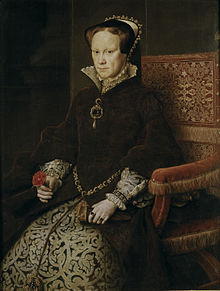
1577-Birth of Thomas West, 3rd Baron De La Warr, English politician
1578 –Birth of Ferdinand II, Holy Roman Emperor
10 July 1527-Thomas More travels with Cardinal Wolsey to France to ratify the new treaty with the French king.
1553 - Jane Grey declared queen of England
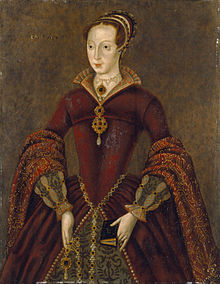
1559 - Henry II died from a jousting accident; Francis II and Mary, Queen of Scots become King and Queen of France

The Queen Elizabeth I to the French King.
True friendship makes all occurrences common among friends, as she feels at the present time. Since the amity lately concluded, she has taken much interest in the matter of his "triumphs," so now she experiences great sorrow on hearing of his wound. She praises God that the danger is so trifling. Anxious to have fuller intelligence she sends the present bearer, Charles Haward, with her most affectionate recommendations, for whom she asks credence.—Greenwich, 10 July 1559
1584 - Execution of Francis Throckmorton, he was a conspirator against Queen Elizabeth I of England in the Throckmorton Plot. He was the son of Sir John Throckmorton, the seventh out of eight sons of Sir George Throckmorton of Coughton Court. He was a nephew of Sir Nicholas Throckmorton, one of Elizabeth's diplomats, who had held the post of Chief Justice of Chester but was removed in 1579, a year before his death. His paternal grandmother, Hon. Katherine Vaux, daughter of Nicholas Vaux, 1st Baron Vaux of Harrowden, was the paternal aunt of Catherine Parr.
-
08 July 1528 – Birth of Emmanuel Philibert, Duke of Savoy
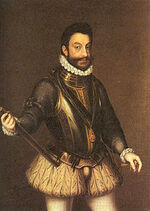
1545 – Birth of Carlos, Prince of Asturias.He was the eldest son and heir-apparent of King Philip II of Spain and Maria Manuela of Portugal
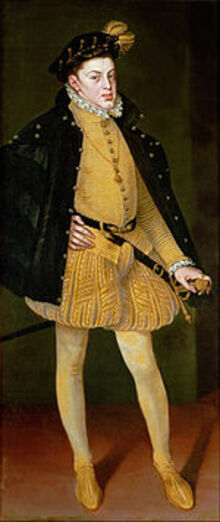
1553 - Mary Tudor declared herself Queen of England
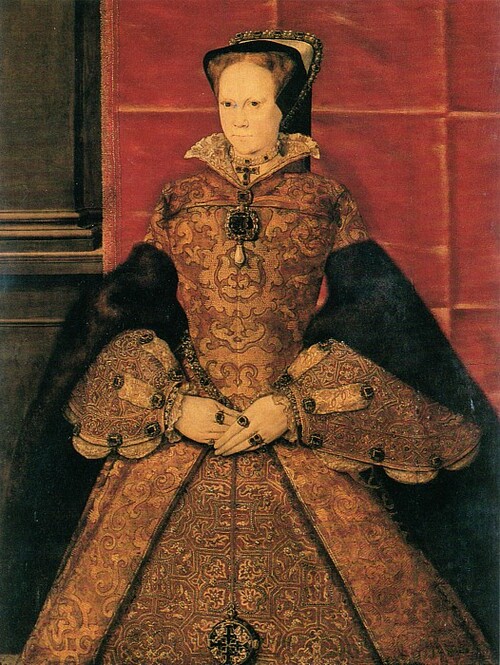
-
7 July 1207 –Birth of Elizabeth of Hungary
1307 – Death of Edward I of England
1456 – A retrial verdict acquits Joan of Arc of heresy 25 years after her death.
1528 –Birth of Archduchess Anna of Austria
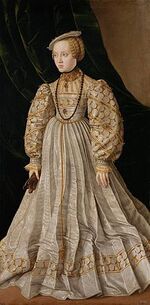
1534-Chapuys to Charles V.
Since the date of your letters of the 12th ult., which I received two days ago, your majesty will have seen by several of mine what was said here of the motions of Germany and the determination come to about the interview, which had been appointed for the middle of August, but has since been put off till Sept. 1 ; and some were lately thinking it would all be broken off, because, as the earl (lord) of Montague has sent to me to say, the king of France has sent word that they must not think when they met of treating anything against the faith, the Pope or the Holy See, because he wished to live a Catholic like his predecessors. This king is getting plate of all sorts manufactured, and all the goldsmiths are fully occupied. A man who has seen a bill of the quantity and the names of those to whom it is to be presented in France (de par dela) says that it will amount to 12,000 marks, I know not whether he means English marks of the value of two nobles each or marks of 8 oz. I believe, besides the said plate, the King will give away some of what he has already made, especially gold cups. The Queen fears that the little plate she has will go this time with her rings and jewels. As to the marriage of the king of Scotland with a daughter of the king of France, this king, as I have before written, has several times assured the Scotch ambassadors that there was an express treaty against it between him and the king of France, so that it is not to be supposed that he will consent to it. He has more suspicion of the French than he had when the said treaty was concluded, which was a little before he went last to France; and especially seeing the alliance the French king has lately made with the Pope, together with the fact that Francis has got nothing from his Holiness in favor of Henry, the making of this marriage would lead to a complete rupture. It is certain the French give the Scotch king some hope of it, to prevent the Scotch king making an alliance with your majesty. It is probable they would prefer it to be so, as they do not know a more convenient match for the youngest daughter. The Scotch ambassador declared to me that they had proposed to them that of Albret, and that it was a ruse to alienate the King his master still further from your majesty on account of the quarrel of Navarre; and that he thought his master would not on any account listen to it. The only danger would be if the Scotch king went to this meeting, as desired by those here and the French also, but I see no appearance of it as yet. I opposed it as much as possible to the ambassador. The person sent by your majesty to the king of Scots will do the rest. I am told by a Spanish sailor that he has arrived.
It is some time since the news arrived that your troops had left Coron. Various things have been said about it, to which I have replied that your majesty undertook to keep it, hoping that other princes would use it as a means of attacking the Turk; but seeing that they did not care, but some of them rather complained that your holding it would provoke the Turk to attempt something against Christendom, you had abandoned it. This language about irritating the Turk has been used to me by those here and by the ambassador of France.
On St. John's Day the ambassadors of Lubeck and Hamburg were with the King at Hampton Court, where they were very well received. On Sunday following they returned thither, and the doctor brought by those of Lubeck, who is the chief of the embassy, made a long Latin oration which lasted nearly two hours. Among other things he reviled horribly the authority of the Pope, and praised inestimably this king for many things, especially for his great learning and enlightenment from God, by which he had come to a knowledge of the truth both as to the authority of the Pope and about his marriage, and that he ought not to leave unavenged the great injury the Pope had done him in that matter. He magnified the power of Lubeck, declaring it was free, and could make alliances without regard to anyone. There is no doubt that when the King requested the Lubeckers to send hither ambassadors, he also furnished them with the matter of this oration. This doctor has played his part so well that the King has presented him with a great reward to remain here in his service, which perhaps he will accept.
He is a native of High Germany, though he lives at Lubeck. The ambassadors were also to have brought another doctor, whose learning and persuasive power they extol above Melanchthon's, but on his departure he fell ill. But being recovered, the ambassadors, I understand, have promised to bring him over to convert those who impugu the last marriage, and who make a difficulty about entering the Lutheran sect. They take it upon them that the said doctor will speak to no one but he will convert him to his opinion. It is not known that the said ambassadors have yet treated of any affairs with those here, and doubtless they will treat nothing against your majesty directly, but indirectly they will make some agreement to defend this king against the Pope and all others who might make war upon him on account of religion, or for execution of the sentence in favor of the Queen.
Although the earl of Kildare is so ill, both in brain and body, that he can do nothing either good or evil, he was apprehended eight days ago and taken prisoner to the Tower, where I am told he would have been put long ago as soon as he arrived here, had it not been that the King always hoped to bring over and entrap his son, a young man of bold and valiant spirit, who has great influence in Ireland; but he has not only refused to come, but has even mustered men and seized artillery belonging to this king, besides other things, of which your majesty will be more surely informed by the person you have sent into Ireland, who I am told had arrived 10 days ago. It is reported that the earl of Desmond has joined the said son of Kildare. Three months ago the provincial of the Cordeliers Observants, going to Ireland to visit his convents, promised me that he would brew there all he could for the preservation of the authority of the Holy See, in which he may do wonderful service, especially among the Wild Irish, by whom these Cordeliers are feared, obeyed and almost adored, not only by the peasants but by the lords, who hold them in such reverence as to endure from them blows with a stick. The men in that quarter being such as your majesty knows, it will be necessary to exhort them continually, and comfort them with some aid, at least to keep them in good hope. Ireland is of no little importance, especially considering its vicinity to Wales, which forms the chief strength of England, and they require only a chief to do as the others do. They have news in Court that the said son of Kildare, or some of his men, had boasted they would have the aid of 12,000 Spaniards; at which, I am told, the King and his Council were much troubled, and some think if these tumults be not appeased, the interview will be broken off; in which case the King might take offence, even at warlike appearances in Spain. It is incredible what pleasure all the people would have at such news. It is some time since the King appointed master Skeffington, master of the artillery, to be governor of Ireland in place of Kildare. He formerly had some charge in Ireland, but some think he will not go thither, for his secretary three days since was committed to the Tower on account of some letters from Ireland. The Lubeckers, perhaps to gratify the English, have been complaining that the Hollanders have broken the truce by sending six ships to some port in Norway, whereas they were not entitled to send more than two or four.
On receipt of the above-mentioned letters of your majesty I immediately informed the Queen, who was marvellously consoled to hear of your prosperity and the care you had of her affairs and those of the Princess. She has sent to me again, as she does almost daily, to desire that above all things I would endeavor to get leave to visit her, but with all my importunity I have never yet been able to get an answer. I do not write at present the language they have used to me about this matter. London, 7 July 1534.
1537 - Death of Madeleine de Valois also known as Magdalene of Valois, was a French princess who became Queen of Scots as the first spouse of King James V of Scotland.

1553 – Robert Reyns informed Mary Tudor of the death of her brother King Edward VI
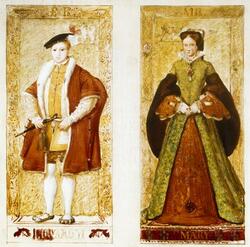
1585 – Birth of Thomas Howard, 14th Earl of Arundel, 4th Earl of Surrey, and 1st Earl of Norfolk
-
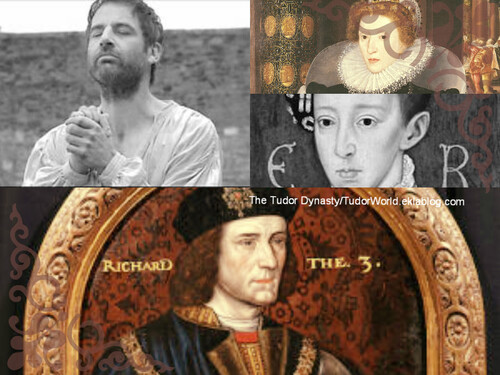
06 July 1189 – Death of Henry II of England

1348 – Pope Clement VI issues a papal bull protecting the Jews accused of having caused the Black Death.

1483 – Richard III is crowned King of England.

1535 – Execution of Sir Thomas More
A bit before 9:00 a.m., More is led from his cell on the 200-yard trip to Tower Hill. A large crowd is waiting at the execution site. More asks the crowd to pray for him in this world, and he would pray for them in the next. He says he was "the King's good servant, but God's first." He knelt down on the block, then rose to kiss his executioner. He knelt down again, his face was covered with a cloth and his neck on the block, and was killed with a single stroke of the axe. His head was boiled and impaled on a pole by London Bridge.
On the 1st July 1535, Master Thomas Murio, chancellor of England, was brought before the judges and the accusations against him read in his presence. The Chancellor and the duke of Norfolk turned to him and said, "You, Master More, have gravely erred against the King; nevertheless we hope by his clemency that if you repent and correct your obstinate opinion in which you have so rashly persevered, you will receive pardon."He replied "My lords, I thank you very heartily for your good will. I pray God preserve me in my just opinion even to death. As to the accusation against me, I fear words, memory, and judgment would alike fail me to reply to such a length of articles, especially considering my present imprisonment and great infirmity."A chair was then ordered to be placed for him, and he proceeded as follows:—
"As to the first article, charging me with having always maliciously opposed the King's second marriage, I will only answer that what I have said has been according to my conscience. I never wished to conceal the truth, and if I had, I should have been a traitor. For this error, if error it should be called, I have been condemned to perpetual imprisonment, which I have already suffered for fifteen months, and my goods confiscated. For this reason I will only reply to the principal charge against me, that I have incurred the penalty of the Statute made in the last Parliament since I was in prison, by refusing to the King his title of Supreme Head of the Church, in proof of which you allege my reply to the Secretary and Council, that as I was dead to the world, I did not care to think of such things, but only of the passion of Christ. I reply that your Statute cannot condemn me to death for such silence, for neither your Statute nor any laws in the world punish people except for words or deeds,—surely not for keeping silence."To this the King's proctor replied that such silence was a certain proof of malice intended against the Statute, especially as every faithful subject, on being questioned about the Statute, was obliged to answer categorically that the Statute was good and wholesome. "Surely," replied More, "if what the common law says is true, that he who is silent seems to consent, my silence should rather be taken as approval than contempt of your Statute. You say that all good subjects are obliged to reply; but I say that the faithful subject is more bound to his conscience and his soul than to anything else in the world, provided his conscience, like mine, does not raise scandal or sedition, and I assure you that I have never discovered what is in my conscience to any person living.
"As to the second article, that I have conspired against the Statute by writing eight letters to the bishop of Rochester, advising him to disobey it, I could wish these letters had been read in public, but as you say the Bishop has burnt them, I will tell you the substance of them. Some were about private matters connected with our old friendship. Another was a reply to one of his asking how I had answered in the Tower to the first examination about the statute. I said that I had informed my conscience, and so he also ought to do the same. I swear that this was the tenor of the letters, for which I cannot be condemned by your statute.
"Touching the third article, that when I was examined by the Council, I answered that your Statute was like a two-edged sword, for he who approved it would ruin his soul, and he who contradicted it, his body; and that the bishop of Rochester answered similarly, showing that we were confederates, I reply that I only answered thus conditionally, that if the Statute cut both ways like a two-edged sword, how could a man behave so as not to incur either danger? I do not know how the Bishop replied, but if he answered like me, it must have been from the agreement between us in opinion, but not because we had ever arranged it between us. Be assured I never did or said anything maliciously against the Statute, but it may be that this has been maliciously reported to the King."
Then they ordered an usher to summon 12 men according to the custom of the country, and these articles were given to them that they might judge whether More had maliciously contravened the Statute. After a quarter of an hour's absence they declared him guilty of death, and sentence was pronounced by the Chancellor "selon la lettre de la noble loy."
More then spoke as follows: "Since I am condemned, and God knows how, I wish to speak freely of your Statute, for the discharge of my conscience. For the seven years that I have studied the matter, I have not read in any approved doctor of the Church that a temporal lord could or ought to be head of the spiritualty."The Chancellor interrupting him, said, "What, More, you wish to be considered wiser and of better conscience than all the bishops and nobles of the realm?" To this More replied, "My lord, for one bishop of your opinion I have a hundred saints of mine; and for one parliament of yours, and God knows of what kind, I have all the General Councils for 1,000 years, and for one kingdom I have France and all the kingdoms of Christendom."Norfolk told him that now his malice was clear. More replied, "What I say is necessary for discharge of my conscience and satisfaction of my soul, and to this I call God to witness, the sole Searcher of human hearts. I say further, that your Statute is ill made, because you have sworn never to do anything against the Church, which through all Christendom is one and undivided, and you have no authority, without the common consent of all Christians, to make a law or Act of Parliament or Council against the union of Christendom. I know well that the reason why you have condemned me is because I have never been willing to consent to the King's second marriage; but I hope in the divine goodness and mercy, that as St. Paul and St. Stephen whom he persecuted, are now friends in Paradise, so we, though differing in this world, shall be united in perfect charity in the other. I pray God to protect the King and give him good counsel."
On his way to the Tower one of his daughters, named Margaret, pushed through the archers and guards, and held him in her embrace some time without being able to speak. Afterwards More, asking leave of the archers, bade her have patience, for it was God's will, and she had long known the secret of his heart. After going 10 or 12 steps she returned and embraced him again, to which he said nothing, except to bid her pray to God for his soul; and this without tears or change of colour. On the Tuesday following he was beheaded in the open space in front of the Tower. A little before his death he asked those present to pray to God for him and he would do the same for them [in the other world.] He then besought them earnestly to pray to God to give the King good counsel, protesting that he died his faithful servant, but God's first.
Such was the miserable end of More, who was formerly in great reputation, and much loved by the King, his master, and regarded by all as a good man, even to his death.

1553 –Death of Edward VI of England, son of Henry VIII and Jane Seymour, Edward was the third monarch of the Tudor dynasty and England's first monarch raised as a Protestant. During Edward's reign, the realm was governed by a Regency Council because he never reached his majority. The Council was first led by his uncle Edward Seymour, 1st Duke of Somerset, (1547–1549), and then by John Dudley, 1st Earl of Warwick, from 1551 Duke of Northumberland.

1557 – King Philip II of Spain, consort of Queen Mary I of England, sets out from Dover to war with France, which eventually resulted in the loss of the City of Calais, the last English possession on the continent, and Mary I never seeing her husband again.

1560 – The Treaty of Edinburgh is signed by Scotland and England.
The Treaty of Edinburgh (also known as the Treaty of Leith) was a treaty drawn up on 5 July 1560 between the Commissioners of Queen Elizabeth of England with the assent of the Scottish Lords of the Congregation, and the French representatives of King Francis II of France (husband of Mary Queen of Scots) to formally conclude the Siege of Leith and replace the Auld Alliance with France with a new Anglo-Scottish accord, while maintaining the peace between England and France agreed by the Treaty of Cateau-Cambresis

source:http://www.british-history.ac.uk/
-
4 July 1415-Pope Gregory XII Resigns at Council of Constance
1519-Followers of Martin Luther Described as Lutherans for First Time

1533 - Burning of John Frith, reformer, at Smithfield for heresy.
1534 – Christian III is elected King of Denmark and Norway in the town of Rye.
1551 – Death of Gregory Cromwell, 1st Baron Cromwell, English politician and son of Thomas Cromwell, 1st Earl of Essex.In 1537, Gregory married Elizabeth, Lady Ughtred, widow of Sir Anthony Ughtred, sister to Jane Seymour and therefore became brother-in-law to Henry VIII and uncle to Edward VI

****************************************
5 July 1321 – Birth of Joan of The Tower, wife of David II of Scotland
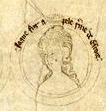
1345-Forced Baptism of Jews is Banned by Pope Clement VI
1375 – Death of Charles III, Count of Alençon
1535-Sir Thomas More's wife, Alice, visits her husband in the Tower. He gives her a letter composed in charcoal for his daughter Margaret. By this time, he also knows that his sentence had been commuted by Henry from disembowelment to beheading.
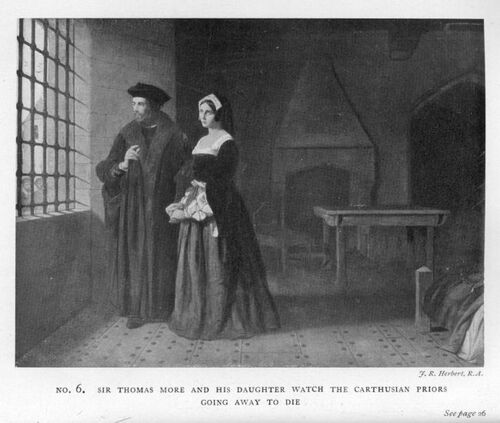
"Our Lord bless you good daughter and your good husband and your little boy and all yours and all my children and all my godchildren and all our friends. Recommend me when you may to my good daughter Cecily whom I beseech our Lord to comfort, and I send her my blessing and to all her children and pray her to pray for me. I send her an handkercher and God comfort my good son her husband. My good daughter Daunce hath the picture in parchment that you delivered me from r my Lady Conyers, her name is on the back side. Shew her that I heartily pray her that you may send it in my name to her again for a token from me to pray for me.
I like special well Dorothy Colly, I pray you be good unto her. I would wit whether this be she that you wrote me of. If not, I pray you be good to the other as you may in her affliction, and to my good daughter Joan Aleyn to give her I pray you some kind answer, for she sued hither to me this day to pray you be good to her.
I cumber you, good Margaret, much, but I would be sorry, if it should be any longer than tomorrow, for it is Saint Thomas' Even and the Vtas of Saint Peter and therefore tomorrow long I to go to God, it were a day very meet and convenient for me. I never liked your manner toward me better than when you kissed me last for I love when daughterly love and dear charity hath not leisure to look to worldly courtesy.
Fare well my dear child and pray for me, and I shall for you and all your friends that we may merrily meet in heaven. I thank you for your great cost.
I send now unto my good daughter Clement her algorism stone and I send her and my good son and all hers God's blessing and mine.
I pray you at time convenient recommend me to my good son John More. I liked well his natural fashion. Our Lord bless him and his good wife my loving daughter, to whom I pray him be good, as he hath great cause, and that if the land of mine come to his hand, he break not my will concerning his sister Daunce. And our Lord bless Thomas and Austin and all that they shall have."
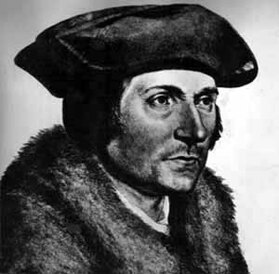
1547 –Birth of Garzia de' Medici, son of Cosimo I de' Medici, Grand Duke of Tuscany

1554 – Birth of Elisabeth of Austria, Queen of France
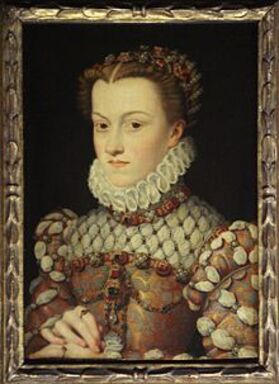
1594 – Portuguese forces under the command of Pedro Lopes de Sousa begins an unsuccessful invasion of the Kingdom of Kandy during the Campaign of Danture in Sri Lanka.
source:wikipedia,http://www.british-history.ac.uk/,the tudors wiki




